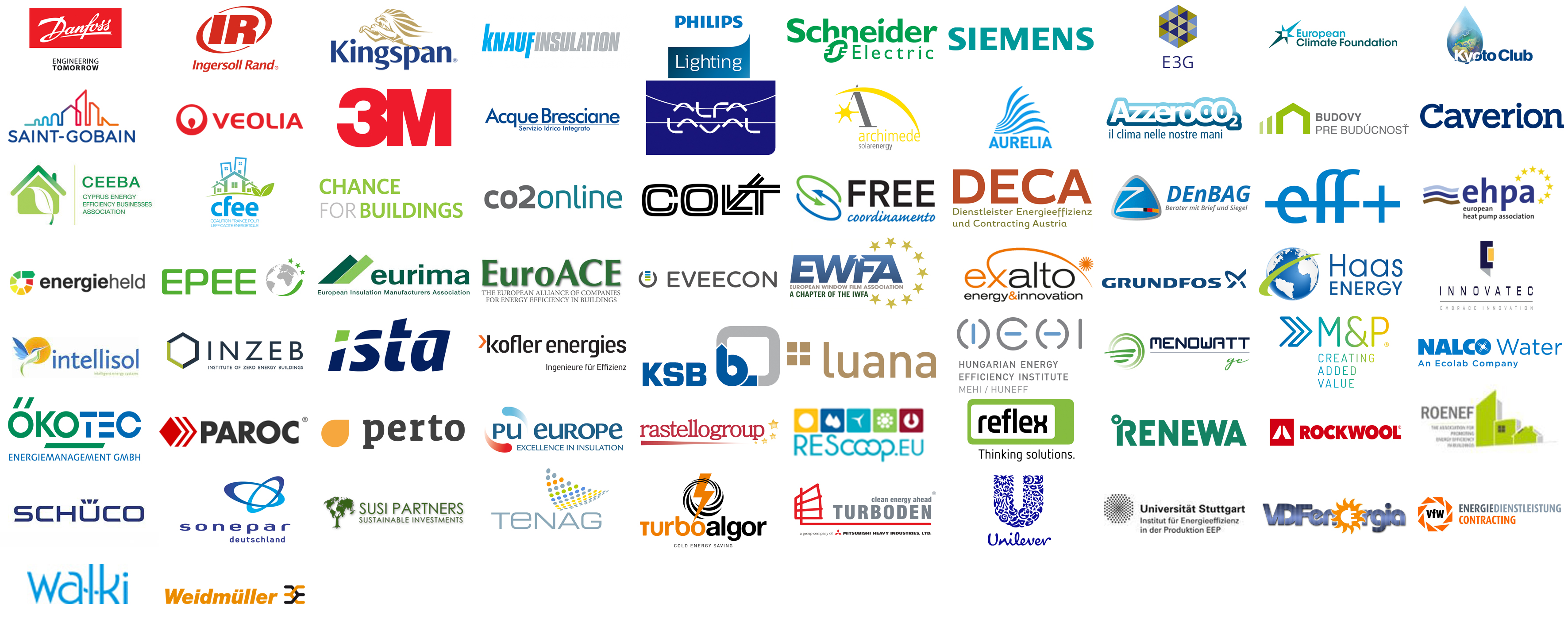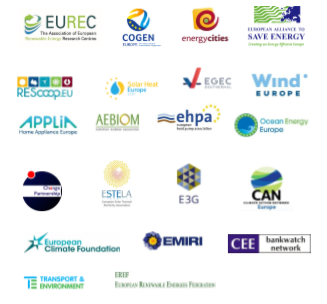Posizione dell’Italia sulla Direttiva sulla Efficienza Energetica (EED) e Regolamento sulla Governance dell’Unione dell’Energia per guidare la transizione energetica dell’Ue
Egregio Ministro,
Le scrivo a nome della European Alliance to Save Energy (EU-ASE), un’organizzazione imprenditoriale multisettoriale i cui membri operano in tutti i 28 Stati membri dell’Unione europea, impiegano 340.000 persone in Europa e hanno un fatturato aggregato annuo di € 115 miliardi.
Innanzitutto mi congratulo per l’importante incarico e mi auguro di poter collaborare con lei e i suoi servizi per affrontare le sfide ambientali, economiche e sociali poste dalla transizione energetica nei prossimi decenni.
Le proposte legislative sull’Efficienza Energetica (EED) e sulla Governance sono fondamentali per il quadro energetico dell’Unione Europea post-2020 e di conseguenza per il successo della transizione energetica italiana ed europea.
Dal punto di vista delle imprese, queste due proposte legislative – se correttamente redatte e attuate – hanno il potenziale di fornire agli investitori un quadro normativo stabile per le decisioni di investimento, di aumentare la competitività dell’industria europea, di generare crescita economica e creare milioni di posti di lavoro in Italia ed in tutto il continente.
Il Parlamento europeo ha adottato lo scorso 17 gennaio un target europeo vincolante per l’aumento dell’efficienza energetica del 35% entro il 2030. Secondo i dati pubblicati dalla Commissione europea, questo nuovo target condurrebbe alla creazione di 1,7 milioni di posti di lavoro in Europa e ad una riduzione del 20% delle importazioni di gas, in linea con gli obiettivi europei post-2020. Non crediamo che ci sia alcun altro settore energetico che possa promettere tanto.
Il prossimo 11 giugno il Consiglio Energia si riunirà a Bruxelles per le ultime fasi della negoziazione sulle proposte di EED e Governance. In vista di questa importante riunione siamo allarmati dalla recenti posizioni espresse dal precedente Governo. Le ultime posizioni della delegazione italiana ci paiono anche in contrapposizione con la stessa Strategia Energetica Nazionale (SEN) approvata dal medesimo Governo e con la posizione dei paesi più avanzati sui temi ambientali ed energetici come ad esempio la Francia.
In particolare l’Italia si è opposta, nel quadro della direttiva EED, alle disposizioni che riguardano la definizione di target vincolanti di risparmio energetico in una prospettiva 2030. Si tratta di un atteggiamento negativo e difficilmente giustificabile alla luce dell’enorme potenziale di risparmio energetico che l’Italia ha in settori chiave come i trasporti e le costruzioni.
Egregio Ministro, La invitiamo a riconsiderare queste posizioni e in particolare a valutare che e’ nell’interesse delle imprese e dei consumatori che l’Italia assuma la leadership nello sviluppo di tecnologie, prodotti e soluzioni per l’efficienza energetica nel settore dei trasporti e delle costruzioni, sulla scia dei buoni risultati raggiunti nell’industria negli ultimi anni.
Nello specifico la invitiamo a:
Direttiva sull’efficienza energetica
- Sostenere la natura vincolante del target di efficienza energetica per rafforzare la fiducia degli investitori
- Aumentare il livello di ambizione del target al 40% entro il 2030, espresso sia in termini di energia primaria che finale
- Estendere il target dell’1,5% annuale di risparmio energetico cumulativo (Art.7) oltre il 2020 (con una prospettiva 2050) per fornire agli Stati membri l’incentivo a proseguire i buoni progressi che essi stessi hanno recentemente riportato di aver raggiunto[1]
- Evitare clausole ed eccezioni che comprometterebbero l’efficacia dell’Art.7 e dell’intera Direttiva
- Includere il consumo di energia nei trasporti nella baseline per il calcolo dei risparmi annuali dell’1,5%.
Regolamento sulla Governance dell’Unione dell’Energia
- Sostenere un meccanismo di governance trasparente e coerente con il principio Efficiency First come guida alle decisioni di investimento in maniera tale da garantire un’adeguata attuazione della legislazione UE in materia di efficienza energetica
- Rafforzare la governance dell’efficienza energetica consentendo alla Commissione di verificare i progressi dei singoli Stati membri rispetto a una traiettoria lineare per garantire un flusso costante di investimenti nei prossimi decenni
- Sostenere lo sviluppo di strategie nazionali comparabili e di lungo termine.
Le auguriamo un proficuo Consiglio Energia, che speriamo fornirà l’ambizione e la direzione politica necessarie per raggiungere un accordo che ponga l’Italia e l’Europa su un percorso coerente di decarbonizzazione entro il 2050.
La ringrazio per l’attenzione e La prego di considerarmi a disposizione, sua e dei suoi uffici, per ogni approfondimento.
Con gli auguri di buon lavoro e i saluti più cordiali,
Monica Frassoni
Presidente della European Alliance to Save Energy (EU-ASE)
In a fast-changing political and economic environment, 2025 was a year of continued efforts to strengthen security, stability, and competitiveness for European businesses.
Throughout the year, our work demonstrated that energy efficiency is not only essential to achieving climate goals, but also a key driver of innovation, energy independence and sustainable long-term growth across Europe.
Strong engagement with policymakers, combined with the successful organisation of the 4th European Energy Efficiency Day, highlighted the importance of collaboration and dialogue in advancing shared objectives. Partnerships across sectors and institutions remained central to delivering impact and shaping effective energy policies.
Looking ahead to 2026, we will intensify our efforts to secure the regulatory certainty that can accelerate the energy transition, while providing businesses with the investment confidence they need and strengthening Europe’s competitiveness.
Read the full Activity Report here.



